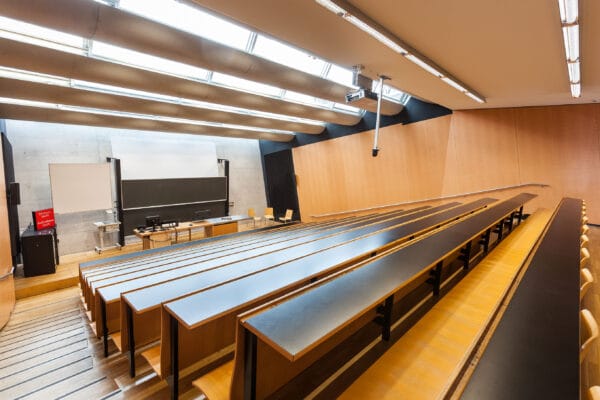
NAME:
SOWI - HS 1
BUILDING:
SOWI
FLOOR:
0
TYPE:
Lecture Hall
CAPACITY:
160
ACCESS:
Only Participants
EQUIPMENT:
Beamer, PC, WLAN (Eduroam), Overhead, Flipchart, Blackboard, Sound System, Handicapped Accessible, Microphones
Mountainous regions are major sediment suppliers, shaping river’s downstream geomorphic and hydrological processes. Sediment supply and geomorphic processes are particularly active in tropical environments owing to intense seasonal precipitations. These processes affect fluvial ecosystems status and increase flood risks, especially when the basins are affected by deforestation and in-channel sediment mining. In tropical regions, data scarcity complicates sediment dynamics assessment, while anthropogenic pressures affect downstream hydro-sedimentological processes and ecosystem services. This study develops in the Camarones river, which drains a 598 km² basin in northern Colombia, including parts of the steep Sierra Nevada Range, and discharges into the Camarones lagoon, a nationally protected area on the Caribbean Sea. The study aims at integrating catchment-scale hydrological and sediment budget modelling with reach-scale fluvial geomorphological assessment and field measurements of sediment transport dynamics. Hydrological modelling is conducted using HEC-GeoHMS, sediment budget estimations are performed with CASCADE, while in situ measurements of sediment transport, hydraulic variables are carried out with a mix of techniques (drone surveys, Bunte traps, Arduino and water level pressure sensors, manual Wolman surveys) within a simplified approach inspired to the River Styles Framework®. Preliminary findings highlight the potential of this integrated approach to analyze and understand sediment dynamics across multiple scales and under projections of climate change, with the aim of providing sustainable floodplain management guidelines. This research is a key component of a larger initiative funded by GCBC (UK), which explores socio-ecological perspectives on sustainable floodplain management and climate change impacts on river ecosystems and biodiversity (NATIVE project).

We and use cookies and other tracking technologies to improve your experience on our website. We may store and/or access information on a device and process personal data, such as your IP address and browsing data, for personalised advertising and content, advertising and content measurement, audience research and services development. Additionally, we may utilize precise geolocation data and identification through device scanning.
Please note that your consent will be valid across all our subdomains. You can change or withdraw your consent at any time by clicking the “Consent Preferences” button at the bottom of your screen. We respect your choices and are committed to providing you with a transparent and secure browsing experience.